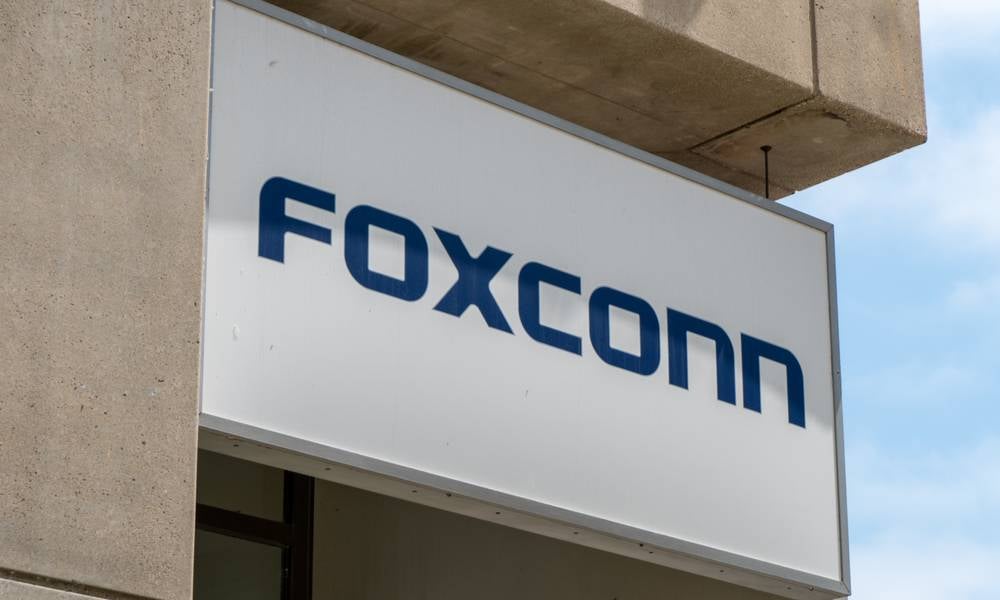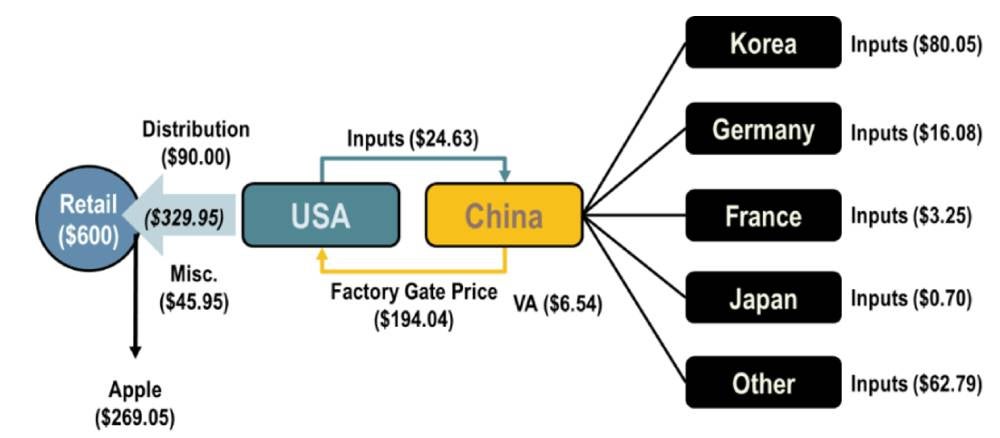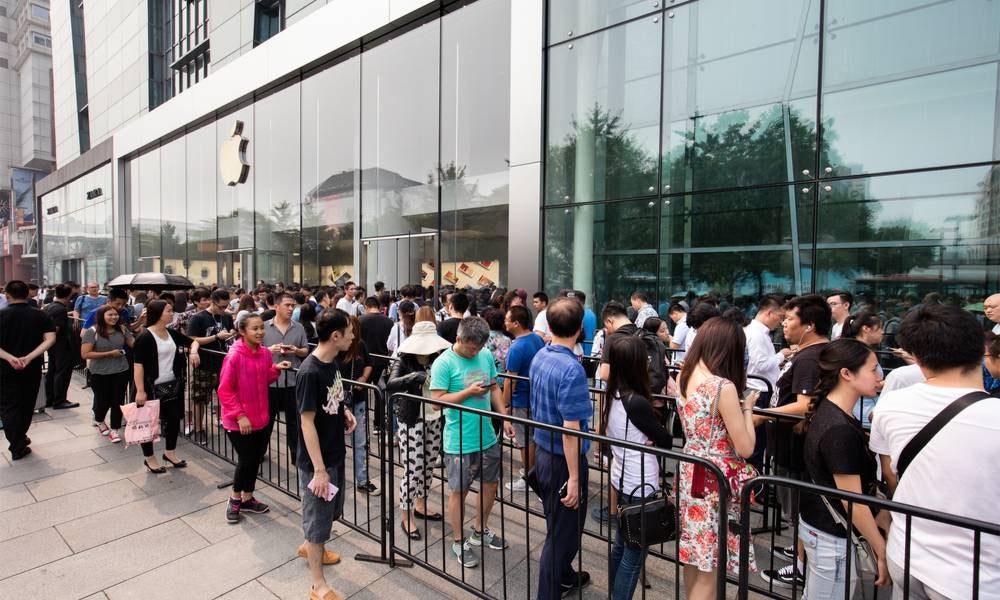Apple and Foxconn: addressing power imbalances in global supply chains
Global suppliers such as Foxconn can form strong business networks to put pressure on dominant clients such as Apple to address power imbalances in global supply chains
Power imbalances in global supply chain contracts are commonplace. One example is Apple's relationship with the world's biggest electronics contract manufacturer Foxconn. With almost 1.3 million employees in mainland China, Foxconn is the country's largest private employer. Over the past decade, Foxconn has made headlines over its exploitation of employees and poor working conditions. Apple, in turn, has faced heavy public scrutiny for continuing to benefit from low labour costs, which promote poor conditions and the unethical treatment of workers inside its iPhone factories.
With Foxconn predicting supply chain issues will persist through to the second half of 2022, many are wondering if Apple has taken any real steps towards improving its global supply chain, and especially its reliance on cheap labour and low taxes in countries like China. Indeed, many experts have acknowledged the problems at Foxconn are far more extensive than poor management.

For example, research shows human rights, environmental and ethical issues persist within Apple's vast global supply chain, and they don't just appear in Apple's relationship with Foxconn. Reports show Apple has either refused or has been slow to stop doing business with other suppliers including Suyin Electronics – a company that has repeatedly violated labour laws and failed to improve workplace safety. And while Apple has said it isn't legally responsible, there are undoubtedly ethical and moral concerns with continuing to profit from cheap labour supplied by companies with repeated labour law violations.
What can suppliers like Foxconn do to put pressure on companies like Apple to address such power imbalances that exist in their global supply chains? Studies to date have primarily focused on the advantages gained by powerful companies like Apple from outsourcing through cheaper labour overseas, while little research into adverse effects associated with this practice has been conducted. But a previously published paper co-authored by UNSW Business School's Associate Professor Maggie Chuoyan Dong examines disadvantages as well as some of the potential solutions.
What are the challenges?
A/Prof. Dong explained the most common challenges, particularly for the supplier organisations in managing relationships with powerful clients, stemming from the power imbalance between these organisations.

Apple is powerful, she said, while Foxconn faces narrow profit margins – with which it has to make enough money for its shareholders. This pursuit of profit has forced Foxconn to put additional pressure on employees, which in turn has led to poor and unsafe labour conditions as well as employee suicides (first reported back in 2010), said A/Prof. Dong, who was recently appointed Head of the School of Marketing at UNSW Business School, and formerly served as Associate Professor at the Department of Marketing, City University of Hong Kong.
"There are certainly production management issues within Foxconn. Given the limited/poor margin, there is also the power imbalance issue within its relationships with Apple, which forces Foxconn to reduce costs," explained A/Prof. Dong. "There are profitability challenges and the risk that Foxconn can be replaced at any time, at any moment, without any reason. So these are the huge challenges they need to face and sometimes may find some unethical or illegal ways to deal with them."
The imbalanced supply chain relationship between Apple and Foxconn

Why traditional solutions won't work
A traditional solution to such a problem might be found in vertical integration. In microeconomics, management, and international political economy, vertical integration is an arrangement in which the supply chain of a company is integrated and owned by that company. Usually, each member of the supply chain produces a different product or service, and the products combine to satisfy a common need.
In theory, Foxconn could try to buy a stake or share in Apple to offset its power disadvantage, however, A/Prof. Dong said this is not a feasible option in this case. "If it can work, it is a good strategy. However, as the not so powerful side, of course, they're lacking the resources. So they may not be financially resourceful for doing so. That's the obstacle; that's a hurdle for them to implement the vertical integration," she said.
The second option would be for Foxconn to invest more into its relationship with Apple, hoping that a gesture of goodwill would strengthen the relationship. But again, according to A/Prof. Dong, this is not a feasible solution. "I interviewed quite a lot of supply chain managers and the procurement managers, and they don't think that is feasible either. Because if you give this kind of one-sided investment, this can take you into an even more disadvantageous position.
"Because if you invest more, you have more 'sunk costs' in this relationship. This means, for example, Foxconn would be less likely to replace Apple with another client because they've already invested a lot into the relationship," she said.
So what can suppliers like Foxconn, especially those in developing countries, do to balance relationships with clients like Apple to overcome some of these challenges?

The profit problem: why Apple must pay up
Profitability is often a considerable challenge for global suppliers. "Foxconn needs to survive. What they want least is to have to close the company. So first, to break even, and then to make money... they will try every possible chance to make a profit," said A/Prof. Dong.
The constant pressure of profitability creates an unhealthy loop for the supplier. "Once you're in an unhealthy loop, you never have time or resources to think about sustainable development, to think about innovation, because you're lacking the time and resources," she said. So with tremendous pressure from Apple to deliver on orders, despite being given minimal time at a low price, Foxconn is trapped in an unhealthy loop. While there are a few things companies like Foxconn can do, the onus is really on the big players like Apple to invest more into their relationships with suppliers, said A/Prof. Dong.
"First, if you want this relationship to be more balanced, to sustain for the longer term, and with more commitments, you need to find ways to encourage the powerful parties, say Apple, to invest more," explained A/Prof. Dong. So if Apple values Foxconn as a long-term supplier, it will have to show this by investing more into their relationship.

Hope in supplier networks
Suppliers can encourage companies like Apple to listen by forming global networks to exchange information more efficiently, said A/Prof. Dong. "Suppliers lack resources like finances, technology, branding, so they need to leverage external resources like network alliances/national databases, to network and collaborate with other business partners," she said. "Together with this business network, they can put more pressure on companies like Apple... together they can build a healthier, more functional relationship that is more stable."
Another solution is for the suppliers to form stronger networks and collaborative relationships with government institutions or global NGOs that specifically aim to address poor working conditions within various countries. This will help put societal pressure on companies like Apple to do the right thing. “Apple is a large listed company and its societal reputation matters, it matters a lot to Apple,” concluded A/Prof. Dong.
Recently, Apple put Foxconn's southern Indian factory on probation following protests after hundreds of women working at the plant and living in a hostel had to be treated for food poisoning, a concern both the firms acknowledged and pledged to address. In 2020, Apple placed another key assembly partner, Wistron, on probation following worker riots over poor working conditions and unpaid wages.
Maggie Chuoyan Dong is an Associate Professor and was recently appointed Head of School in the School of Marketing at UNSW Business School. Her research interests range from international and business marketing to distribution channels and the marketing-operations interface with a strong focus on a range of supply chain management topics (including the product development-supply chain-finance interface). For more information, please contact A/Prof. Dong directly.
